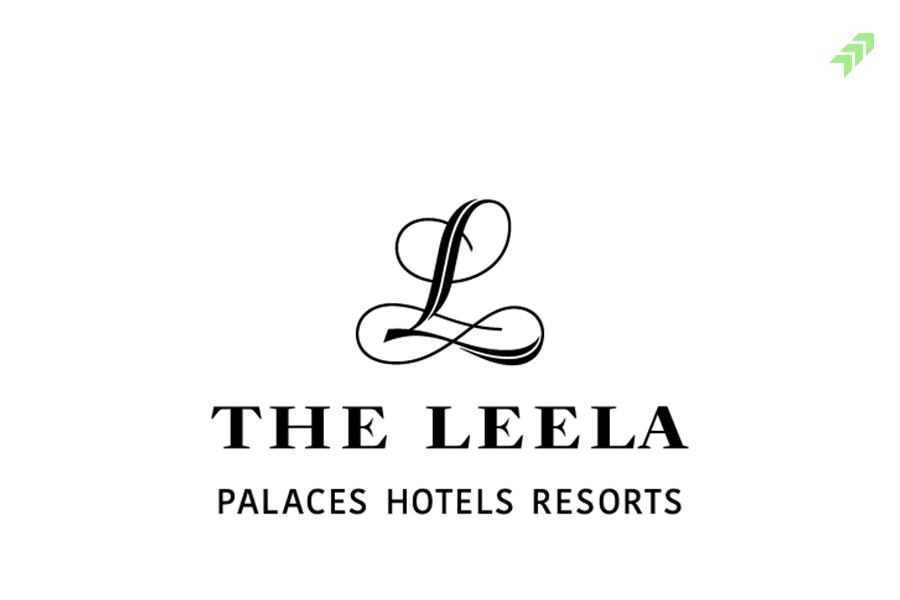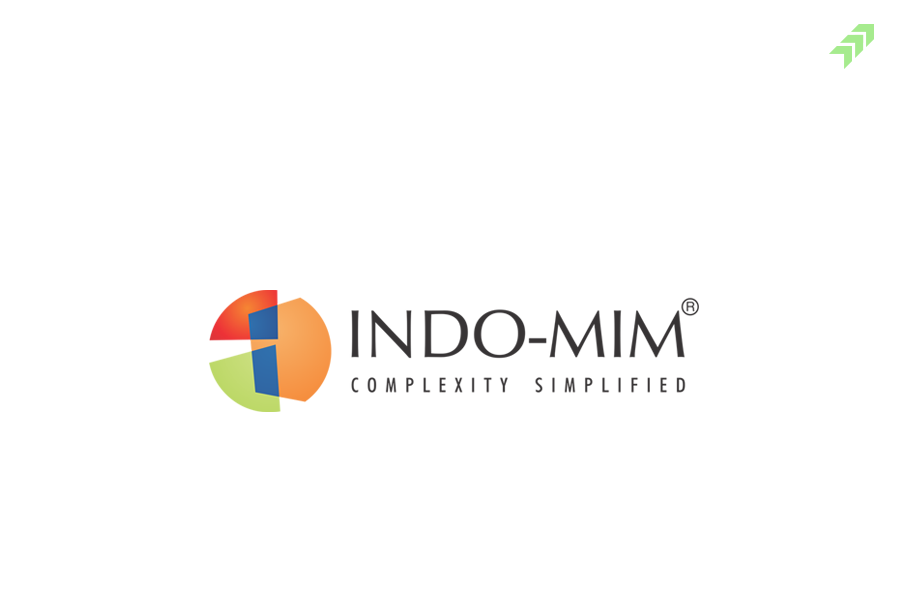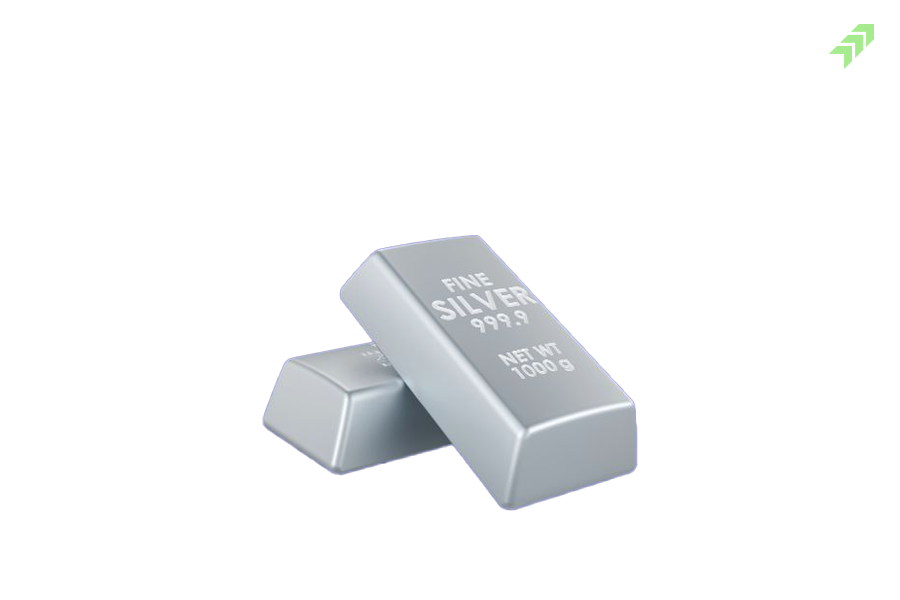Business Profile of the Schloss Bangalore Limited
The Leela brand, founded in 1986 by Late Captain C.P. Krishnan Nair, is a leading luxury hospitality company in India. The brand contributing significantly to India’s luxury hospitality landscape. As of May 31, 2024, the Leela brand comprises 3,382 keys across 12 operational hotels, including The Leela Palaces, The Leela Hotels, and The Leela Resorts.. The company operates primarily through direct ownership of hotels and hotel management agreements with third-party owners. The company’s portfolio includes five iconic hotels, six operational luxury hotels, and one franchised hotel.
The company plans to expand its portfolio with eight new hotels, aggregating approximately 833 keys or 24.63% of existing keys, through 2028. The growth pipeline includes modern palaces, hotels, and resorts, as well as expansion in wildlife, spiritual, and heritage tourism segments. The company plans to continue strategic expansion across the luxury hospitality sector within India and internationally, focusing on developing existing land assets, pursuing acquisition, hotel management agreements.
The company has achieved notable achievements since October 2019, including being ranked as the world’s best hospitality brand, increasing the number of keys across its portfolio, improving EBITDA and EBITDA Margin, achieving RevPAR and ARR growth, and investing in sustainability.
The company’s EBITDA margin for 2024 was 48.92%, better than its listed peers. The RevPAR of the Leela portfolio was approximately 3 times of the overall hospitality industry in India times and 1.4 times of the luxury hospitality segment in India for the Financial Year 2024. The company believes it is strategically positioned to capitalize on industry trends and tailwinds, as India’s only institutionally owned and managed pure-play luxury hospitality company.
Schloss Bangalore Limited IPO Objective
As per the draft red hearing prospects, the IPO issue consists only of offer for sale.
- The OFS consists of up to XXXX equity shares aggregating up to Rs. 2000 crores. Nothing from those proceeds of OFS will be allotted to company.
- Schloss Bangalore IPO offer has fresh issue of Rs. 3, 000 crores. The company aims to utilize around Rs. 2700 crores toward paying certain outstanding debt of the company and its subsidiary and rest of the remaining amount will be used for General corporate purposes.
| Particulars | Total estimated amount to be funded from the Net Proceeds |
| Payment of certain outstanding borrowings availed by: | 27000 |
| (a) By the company | |
| (b) Certain of subsidiaries, namely, Schloss Chanakya, Schloss Chennai, Schloss Udaipur and TPRPL, through investment in such Subsidiaries | |
| General corporate purposes | XXXX |
| Net Proceeds | XXXX |
IPO Details of Schloss Bangalore Limited:
| IPO Open Date | Mon, May 26, 2025 |
| IPO Close Date | Wed, May 28, 2025 |
| Basis of Allotment | NA |
| Listing Date | June 2, 2025 |
| Face Value | ₹10 per share |
| Price | ₹413 to ₹435 per share |
| Lot Size | 34 Shares |
| Total Issue Size | 8,04,59,769 shares |
| (aggregating up to ₹3,500.00 Cr) | |
| Fresh Issue | 5,74,71,264 shares |
| (aggregating up to ₹2,500.00 Cr) | |
| Offer For Sale | 2,29,88,505 shares of ₹10 |
| (aggregating up to ₹1,000.00 Cr) | |
| Issue Type | Book building IPO |
| Listing At | BSE & NSE |
| QIB Shares Offered | Not less than 75% of the Net Offer |
| Retail Shares Offered | Not more than 10% of the Net Offer |
| NII (HNI) Shares Offered | Not more than 15% of the Net Offer |
Issue Price & Size: Schloss Bangalore Limited IPO
The issue size of the IPO has been declared and the overall issue size of the IPO is Rs 3,500.00 Cr, out of which 5,74,71,264 Equity Shares, aggregating up to Rs 2,500.00 Cr, comprise of fresh issuance, and the remaining Rs 1,000.00 Cr will be offered for sale by shareholders.
Launch Date of Schloss Bangalore Limited IPO
Schloss Bangalore Limited IPO will be open on May 26, 2025 and close on the May 28, 2025. All types of investors can bid between these dates through their eligible categories.
Schloss Bangalore Limited Financial Statements
| For 2-mon ended May 31, 2024 | FY24 | FY23 | FY22 | |
| Income | ||||
| Revenue from operations | 1608.91 | 11714.53 | 8600.58 | 3801.07 |
| Other income | 88.52 | 550.47 | 432.09 | 358.42 |
| Total income | 1697.43 | 12265 | 9032.67 | 4159.49 |
| Expenses | ||||
| Cost of food and beverages consumed | 132.45 | 849.8 | 669.31 | 365.85 |
| Employee benefits expense | 446.56 | 2342.86 | 1731.73 | 1282.43 |
| Finance costs | 735.55 | 4326.21 | 3591..43 | 3249.08 |
| Depreciation and amortisation expenses | 256.85 | 1479.76 | 1250.45 | 1305.82 |
| Other expenses | 500.93 | 3072.08 | 2395.34 | 1634.02 |
| Total expenses | 2072.34 | 12070.71 | 9638.26 | 7837.2 |
| Restated profit/(loss) before tax | -374.91 | 194.29 | -605.59 | -3677.71 |
| Restated (loss) for the period/year | -363.87 | -21.27 | -616.79 | -3198.29 |
| KPIs | Unit | The Leela | The Indian Hotels Company | EIH Limited | Chalet Hotels | Juniper Hotels Limited |
| As at and for Fiscal 2024 | ||||||
| Revenue growth (%) | % | 36.21% | 16.50% | 24.39% | 25.59% | 22.61% |
| Revenue from food & beverages | ₹ in million | 4317.12 | 23861.2 | 9535.21 | 4008.13 | 2469.73 |
| Contribution of Rev from food & beverages
(As a % of Revenue from operations) |
% | 36.85% | 35.25% | 37.97% | 28.28% | 30.20% |
| EBITDA | ₹ in million | 6000.26 | 23400.5 | 10416.17 | 6043.78 | 3196.55 |
| EBITDA margin (%) | % | 48.92% | 33.66% | 39.67% | 42.06% | 38.68% |
| Restated profit / (loss) for the period/ year | ₹ in million | -21.27 | 13302.4 | 6777.05 | 2781.81 | 237.98 |
| Restated profit /(loss) margin | % | -0.17% | 19.14% | 25.81% | 19.36% | 2.88% |
| Adjusted Net borrowings | ₹ in million | 37753.56 | -12456.1 | -6406.23 | 27628.23 | 3991.91 |
| Inventory/ Keys | Number | 3382 | 24136 | 4269 | 3052 | 1895 |
| Number of hotels | Number | 12 | 218 | 30 | 10 | 7 |
| Average room rate | ₹ | 15212.77 | 15414 | N.A | 10718.44 | 10165 |
| Average occupancy | % | 63.05% | 77.00% | N.A | 72.55% | 75.00% |
| RevPAR | ₹ | 9592.29 | 11821 | N.A | 7776 | 7645 |
| TRevPAR | ₹ | 26218.12 | N.A | N.A | N.A | N.A |
| Employee benefit expense
(as a % of Total income) |
% | 19.10% | 25.97% | 18.73% | 13.54% | 17.51% |
Schloss Bangalore Limited Promoters & Shareholding
As of date, there are seven corporate promoters of the company, i.e.
- Project Ballet Bangalore Holdings (DIFC) Pvt Ltd
- BSREP III Joy (Two) Holdings (DIFC) Limited
- BSREP III Tadoba Holdings (DIFC) Pvt Ltd
- Project Ballet Chennai Holdings (DIFC) Pvt Ltd
- Project Ballet Gandhinagar Holdings (DIFC) Pvt Ltd
- Project Ballet HMA Holdings (DIFC) Pvt Ltd
- Project Ballet Udaipur Holdings (DIFC) Pvt Ltd
The promoter in aggregate collectively holds 99.99% of the paid-up share capital of company, on a fully diluted basis.
| Category and name of Shareholder | Pre-Offer No. of Equity Shares held | Pre-Offer No. of Equity Shares held on a fully diluted basis | Pre-Offer % of Equity Share capital on a fully diluted basis# |
| Promoters | |||
| Project Ballet Bangalore Holdings (DIFC) Pvt Ltd | 175985315 | 175985315 | 19.12 |
| BSREP III Joy (Two) Holdings (DIFC) Limited | NIL | 83580903 | 9.08 |
| BSREP III Tadoba Holdings (DIFC) Pvt Ltd | NIL | 323898735 | 35.18 |
| Project Ballet Chennai Holdings (DIFC) Pvt Ltd | NIL | 121015652 | 13.15 |
| Project Ballet Gandhinagar Holdings (DIFC) Pvt Ltd | NIL | 21081137 | 2.29 |
| Project Ballet HMA Holdings (DIFC) Pvt Ltd | NIL | 145461767 | 15.8 |
| Project Ballet Udaipur Holdings (DIFC) Pvt Ltd | NIL | 49549518 | 5.38 |
| Promoter group | |||
| BSREP III India Ballet Holdings (DIFC) Limited | 5 | 5 | Negligible |
| Total | 175985315 | 920573022 | 100 |
Should You Subscribe to Schloss Bangalore Limited IPO or Not
While investing or subscribing to any IPO, consider the investment rationales related to the company. Hence, here you can find out the strength of the company that will be its growth factors. And also check the risk factors that can affect the growth and operational efficiency of the company.
Competitive Strengths of Schloss Bangalore Limited:
Leading Luxury Hospitality Brand
The Leela brand’s service philosophy, “Atithi Devo Bhava,” is deeply rooted in Indian heritage and combines contemporary approaches to modern luxury hospitality. The Leela brand is the only institutionally owned and managed pure-play luxury Hospitality Company in India. With over 250 industry awards since January 2021, the brand is known for its superior architecture, guest facilities, and services. The Leela brand has been ranked as #1 among the world’s best hotels and travel experiences by publications such as Travel + Leisure and Conde Nast Traveler.
The company’s focus on luxury hospitality has enabled it to excel in operational and financial metrics, with a TRevPAR of ₹26,218, and an industry-leading EBITDA Margin of 48.92%. The company’s global appeal is further evidenced by the diverse mix of guests, with international travelers contributing 43.7% of room revenues in the Financial Year 2024.
Marquee Owned Hotel
The Owned Portfolio comprises five iconic landmark hotels in India, including Bengaluru, Chennai, New Delhi, Jaipur, and Udaipur. These palaces blend traditional Indian architecture with contemporary luxury, offering luxury experiences to enhance guest stays. Between 2019 and 2024, the portfolio demonstrated a 11.8% CAGR in RevPAR (revenue generated per available room), significantly higher than the 8.6% CAGR of the overall luxury hospitality sector in India. The portfolio has been designed and built to exceed industry specifications, creating a competitive advantage for the company to attract guests.
The modern palace hotels in New Delhi, Bengaluru, and Chennai are among the largest in their respective markets, and there is no upcoming competitive supply in the micro-markets. This network effect has strengthened the brand and enabled it to achieve premium pricing and consistent global recognition. 203
The Leela Palace Bengaluru has received numerous awards, including the #1 City Hotel in India. The Leela Palace New Delhi situated in the center of the diplomatic enclave of Chanakyapuri in New Delhi, and has also received numerous awards.
Track Record of Driving Operational Efficiency
The company’s asset management strategy has led to superior EBITDA margins and increased RevPAR for its Owned Portfolio. They have invested in refurbishment, upgrading, and repurposing of underutilized spaces, resulting in a 1.4 times increase in RevPAR compared to the luxury hospitality segment in India. They focus on revenue optimization, maintaining cost discipline while ensuring high NPS scores. Sponsored by a International brand comes up with international touch in operations and management. The company has made significant progress toward conserving nature through proper waste management, water utilization, and renewable energy usage. The company has generated more than 50%of electricity from renewable sources in 2024.
Sponsorship by Brookfield
Brookfield, a global alternative asset manager and investor, manages US$925 billion of assets across real estate, infrastructure, renewable power, private equity, and credit sectors. With a strong global track record in hospitality, Brookfield’s presence in India and extensive development experience in India provide growth opportunities. The company plans to collaborate with Brookfield affiliates on a serviced apartment’s project in Mumbai, benefiting from Brookfield’s expertise, relationships, and strong corporate governance standards.
Future strategy
Brookfield aims to maintain its position as a leading luxury hospitality brand by optimizing existing properties’ operating performance and strengthening its industry position through portfolio expansion. The company plans to enhance existing properties, increase sales and marketing efficiency, target acquisitions, developments, and hotel management agreements, and leverage their brand through complementary business extensions.
The company is focusing on operational revenue enhancement, operational efficiency, and cost management to capitalize on the expected increase in travel demand. They are expanding their marketing efforts, prioritizing direct booking channels, and focusing on international guests. They are also improving operational efficiencies and optimizing costs through comprehensive training programs. The company plans to expand its portfolio through acquisitions and developments of hotels in premier locations for serving demand for luxury offerings.
The company plans to expand its presence in key gateway markets in India and internationally, including the Maldives, Dubai, Mumbai, and Goa. They will use Greenfield development, inorganic acquisitions, and hotel management arrangements to achieve growth. The company will also expand the reach of the Leela brand, introducing exclusive clubs, branded serviced residences, and luxury serviced apartments to enhance customer loyalty, generate revenue, and cater to the growing demand for luxury residential experiences in India.
Risk Factors of Schloss Bangalore Limited:
Reputation of Leela brand
The Leela brand ranked as the world’s best hospitality brand in 2020 and 2021. The company owns, operates, and develops luxury hotels and resorts. The brand’s reputation depends on public recognition and perception, making it susceptible to risks of brand obsolescence and reputational damage. Negative publicity from third-party hotel owners or franchise arrangements may negatively affect the brand’s reputation. The performance and quality of services at the hotels are critical to the business’s success, but the brand cannot guarantee consistent service quality. Factors such as accidents, strikes, crime, and guest notoriety can also negatively impact the brand’s image. Third parties using the brand’s trademarks may also affect the brand’s reputation.
Revenue concentration
The Leela Palace Group has a significant portion of its total income generating from five hotels, names of which along with their revenue contribution has been mentioned in table below. Any decrease in any of these hotels’ revenues, due to competition, reduced demand or any sort of disaster could negatively impact its business and financial condition.
Among the top five, Leela Palace Bengaluru contributed to more than 30% of total revenue to the company. For marking its presence in one of Indian city, Rajasthan, it has undertaken acquisition of Tulsi Palace Resort Private Limited, which was completed by May 27, 2023 and owns which owns The Leela Palace Jaipur. The company has not experienced significant disruptions due to social, political, or economic factors, natural calamities, or civil disruptions in these regions during the past three financial years and the two months ended May 31, 2024.
| Hotels | For 2-mon ended May 31, 2024 | FY24 | FY23 | FY22 |
| (% of total income) | ||||
| The Leela Palace Bengaluru | 32.31% | 28.69% | 34.25% | 28.96% |
| The Leela Palace Chennai | 19.72% | 18.04% | 20.25% | 17.88% |
| The Leela Palace New Delhi | 23.09% | 24.45% | 26.23% | 27.36% |
| The Leela Palace Jaipur | 12.39% | 14.51% | – | – |
| The Leela Palace Udaipur | 5.40% | 8.09% | 10.40% | 16.23% |
| Total contribution from five largest hotels | 92.92% | 93.77% | 91.13% | 90.43% |
History of losses
The company and some of its subsidiaries have experienced losses in past and may face losses in future. Data in the table mentioned below shows losses for the time period taken into consideration. If the company couldn’t turn around its business, or bring in efficiency to its business then they may continue to face losses in future. It may hinder its expansion plans, generate returns for its shareholders, and improve cash flows and financial condition.
| Particulars | For the two months ended May 31, 2024 | FY24 | FY23 | FY22 |
| Restated (loss) for the period/year | -368.87 | -21.27 | -616.79 | -3198.29 |
(₹ in million)
Costs related to maintaining hotel properties
The costs of upgrading, maintaining, and developing the hotels may increase over time as the properties age, disrupting business operations and potentially resulting in partial or full loss of income. The required works may also impose unbudgeted costs on the company, potentially affecting its business, financial condition, results of operations, and prospects.
The company plans to renovate its portfolio of hotels due to wear and tear and to maintain their attractiveness to customers. As of May 31, 2024, the company anticipates incurring capital expenditures of Rs. 407.8 crores under its capital expenditure plan.
The company typically does not suspend operations or reduce guest intake in cases of minor maintenance, renovation, or development. However, the company cannot guarantee that these renovation plans will generate expected returns, which could adversely affect its business, financial condition, and cash flow.
Substantial indebtedness
The company operates in a capital-intensive sector that requires significant capital expenditures to develop, maintain, refinance existing debt and also renovate properties. As can be seen from data mentioned in table below, the company latest indebtedness figures amount to around Rs. 4025 crores on a consolidated basis.
Financing cost on a consolidated basis has been raising y-o-y and as of May 2024 stood at 43.33% to the total income of the company. The company through fresh IPO proceeds wants to repay some of its certain outstanding on standalone and on subsidiary basis. If the IPO is sailed successfully, then it will boost company cash flow, open may open option for growth opportunists and improve financials.
| Particulars | For the two months ended May 31, 2024 | FY24 | FY23 | FY22 |
| Total Borrowings (₹ in million) | 40525.02 | 42421.81 | 36961.82 | 36768.07 |
| Finance Costs (₹ in million) | 735.55 | 4326.21 | 3591.43 | 3249.08 |
| Finance Costs as a % of Total Income (%) | 43.33% | 35.27% | 39.76% | 78.11% |
Inability to effectively manage expansion
The company is focusing on expanding its portfolio and service offerings through acquisitions, joint ventures, and hotel management agreements. They have approximately 833 keys across eight new hotels in their growth pipeline, including hotel development, acquisitions, and new hotel management agreements. The hotels subject to new hotel management agreements have not yet commenced operations. They have also entered into an exclusive joint venture agreement with a third party for expansion in standalone Leela branded for-sale residences, subject to mutual agreement.
The success of acquisitions, joint ventures, and new hotel management agreements depends on the ability to realize anticipated growth opportunities, financial and operational synergies, and additional expenditures. The company plans renovations in a phased manner and rebrands hotels after acquisitions, which has historically shown accretive returns on incremental capital expenditure. However, challenges may arise in acquiring and integrating new businesses, such as acquiring hotels overseas, including unanticipated liabilities, developing internal infrastructure, and satisfactory performance of joint venture or other shareholders. Acquisitions or joint ventures may result in dilutive issuances of equity securities or the incurrence of debt.
Income by operating structure
As of date, the company directly operates 5 out of 12 hotels owned and managed by them, six are managed by them pursuant to the respective hotel management agreements with 3rd-party hotel owners, and one hotel is under a franchise arrangement with a third-party owner and operator.
The breakdown of total income by operating structure for the period/years indicated shows that success in achieving desired results depends on its ability to establish and maintain long-term relationships with third-party hotel owners, renew existing agreements, and enter into new hotel management agreements. Although the contract with 3rd party are for longer periods but these arrangements can be terminated under several circumstances.
Any termination or non-renewal of hotel management agreements by third-party hotel owners in the future may have an negative effect on business.
| Particulars | For 2-mon ended May 31, 2024 | FY24 | FY23 | FY22 |
| (% of total income) | ||||
| Income from Owned Portfolio | 92.92% | 93.77% | 91.13% | 90.43% |
| Income from hotels under hotel management
agreements with 3rd-party owners |
4.01% | 1.05% | 6.71% | 6.15% |
| Income from other sources | 3.07% | 2.17% | 2.16% | 3.42% |
Dependant on travelers & Agents
The hospitality sector in India is cyclical, with demand for hotel rooms fluctuating based on macroeconomic cycles. The company’s success depends on its ability to compete effectively in areas such as brand recognition, room rates, location, quality of accommodation, service levels, and attractiveness of its loyalty program. The company may face increased competition from hotel aggregators, alternative accommodation options, serviced residences, apartments, short-term rentals, and co-living options. As it seeks to establish its presence overseas, it may face competition from hotel facilities and aggregators, including major multinational hotel chains.
The company may also face competition from travel agents and intermediaries, who may gain market share compared to the company’s direct reservation system. The company’s success depends on anticipating and responding to customer requirements and delivering quality service. To compete with new trends and meet evolving customer needs, the company must continuously improve and update its services.
| Particulars | For the 2-mon ended
May 31, 2024 |
FY24 | FY23 | FY22 |
| (% of total income) | ||||
| Income generated from travel agents
and other intermediaries |
8.91% | 9.19% | 8.25% | 8.31% |
| Sales and credit card commission | 3.04% | 2.92% | 2.58% | 2.60% |
Defaults by customers
The company extends credit to some customers but cannot guarantee the recovery of outstanding amounts in part, full, or at all. Their trade receivables are listed in the table, with average outstanding receivable days and loss allowance. If payments from customers continue or increase proportionally to our total income, it could lead to bad debts and negatively impact our cash flows and financial condition. The table also shows the ageing of trade receivables, with unbilled amounts and outstanding periods. While we may take appropriate action in case of non-payment, we cannot guarantee successful recovery of outstanding amounts, which could negatively impact our cash flows and financial condition.
| Particulars | For 2-mon ended May 31, 2024 | FY24 | FY23 | FY22 |
| Trade receivables (net of loss allowance)
(₹ in million) |
594.82 | 729.05 | 702.09 | 520.13 |
| Loss allowance (₹ in million) | 373.38 | 373.27 | 328.51 | 212.21 |
| Average outstanding receivable days | 24 | 21 | 25 | 41 |
| Unbilled | 124.96 | 105.87 | 195.58 | 128.15 |
| Outstanding for less than 6 months from due date | 267.75 | 502.94 | 475.89 | 263.21 |
| Outstanding for 6 months to 1 year from due date | 195.52 | 117.58 | 26.69 | 89.74 |
| Outstanding for 1-2 years from due date | 4.56 | 2.28 | 3.7 | 17.23 |
| Outstanding for 2-3 years from due date | 1.87 | 0.38 | 0.23 | 21.8 |
| Outstanding for more than 3 years from due date | 0.16 | – | – | – |
Schloss Bangalore Limited Grey Market premium
Grey market premium is the premium quoted over the IPO issue price. GMP shows that investors are ready to pay above the upper band of the IPO issue price. GMP is determined in the grey market as per the demand and supply of the shares in the primary market. A grey market is that unofficial ecosystem of unlisted companies’ stocks that start trading even before the launch of the IPO to the date of its listing.
Also Read: What is Grey Market Premium in IPO: How is GMP Calculated & Reliable
However, GMP is not a reliable factor, as it keeps fluctuating as per the demand and supply of shares in the primary market. There are numerous factors that affect the stock market in India and individual stock prices of different companies that are already listed and trading in the secondary market. However, for an IPO-bounded company, you can consider the GMP as the speculative listing price of the share
As per the sources, the GMP of Schloss Bangalore Limited IPO is trading at around Rs 14 in the grey market shows the share of Schloss Bangalore Limited is expected to list at around Rs 449 if you consider the upper price band of Rs 435 announced in the IPO for the bidding.

















